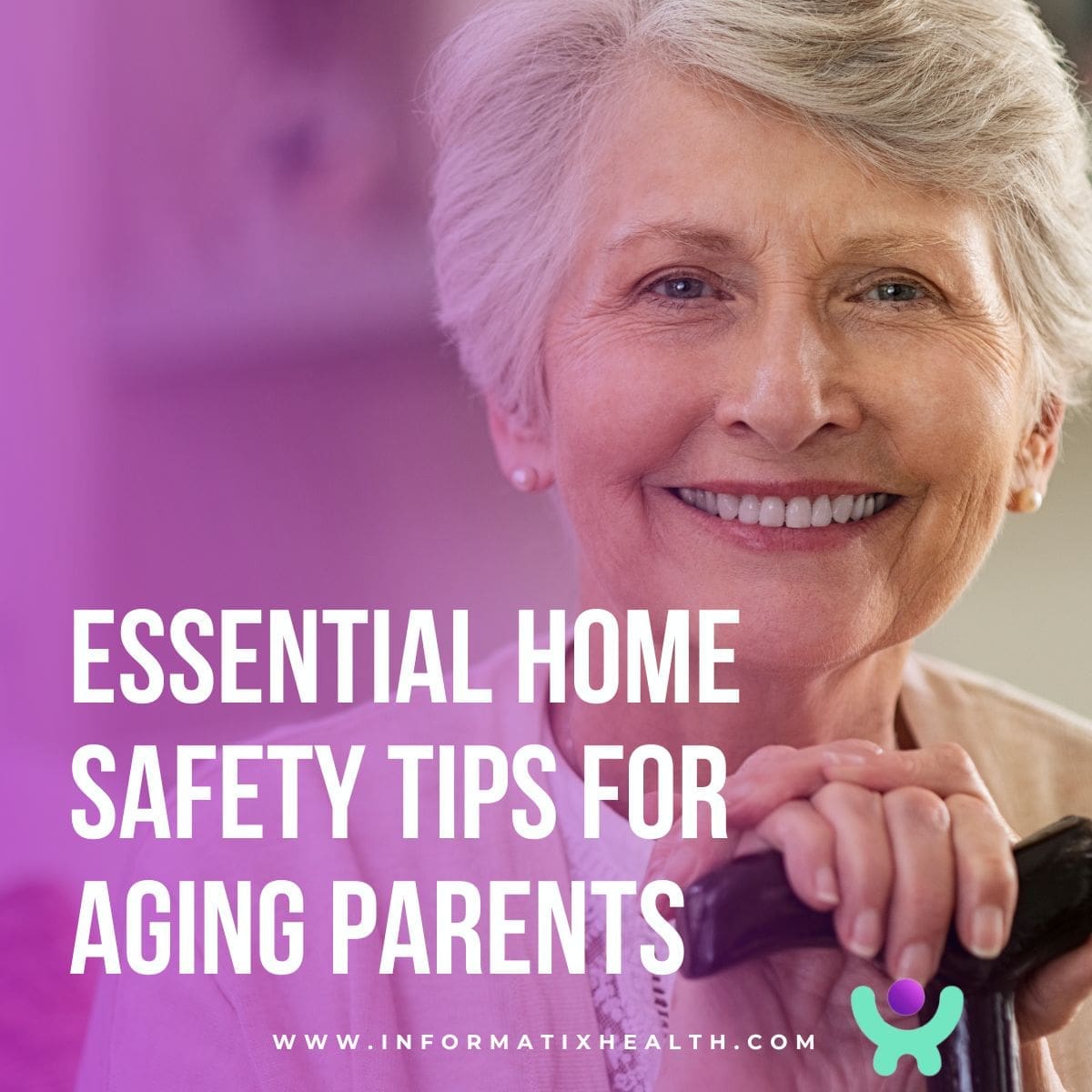As our loved ones age, ensuring their safety and well-being becomes a top priority, especially within the comfort of their own homes. With a few simple adjustments and precautions, you can create a safe environment that allows them to maintain their independence while minimizing the risk of accidents and injuries. Let’s explore essential home safety tips tailored specifically for aging parents.
1. Declutter and Organize: Start by removing any unnecessary clutter and organizing the living space to create clear pathways. Eliminate tripping hazards such as loose rugs, electrical cords, and low-lying furniture. Keep commonly used items within easy reach to reduce the need for excessive bending or stretching.
2. Install Handrails and Grab Bars: Install handrails along staircases and grab bars in bathrooms to provide additional support and stability. These simple additions can help prevent slips and falls, especially in areas prone to moisture.
3. Improve Lighting: Ensure adequate lighting throughout the home, especially in hallways, staircases, and entryways. Replace dim or outdated light fixtures with brighter, energy-efficient alternatives. Consider installing motion-sensor lights in key areas to illuminate pathways automatically.
4. Secure Bathrooms: Make bathrooms safer by installing non-slip mats in showers and tubs and securing bathmats to prevent slipping. Adjust water temperature settings to avoid scalding, and consider installing a handheld showerhead for added convenience.
5. Enhance Kitchen Safety: In the kitchen, organize cabinets so that frequently used items are easily accessible. Install grabber tools to reach items on high shelves without the need for climbing. Ensure that appliances are in good working condition and have automatic shut-off features to prevent accidents.
6. Address Mobility Challenges: If your aging parent experiences mobility issues, consider investing in mobility aids such as walkers, canes, or wheelchairs. Ensure that these devices are properly adjusted and fitted to provide maximum support and comfort.
7. Monitor Medications: Keep track of your parent’s medications and ensure that they are stored safely and taken as prescribed. Consider using pill organizers or medication reminder apps to help manage multiple medications and dosages.
8. Install Home Security Systems: Consider installing a home security system equipped with features such as smoke detectors, carbon monoxide detectors, and emergency alert buttons. These systems can provide peace of mind and prompt assistance in the event of an emergency.
9. Stay Connected: Encourage regular communication and check-ins with your aging parent to ensure their well-being. Consider setting up video calling or monitoring systems to maintain regular contact, especially if you live apart.
10. Plan for Emergencies: Develop an emergency plan with your parent, including contact information for healthcare providers, emergency services, and trusted neighbors or family members. Keep essential documents such as medical records, insurance information, and advance directives easily accessible.
You can create a secure and comfortable environment that allows your aging parent to age in place with dignity and independence. Remember to regularly reassess their needs and make any necessary adjustments to ensure their ongoing safety and well-being.


